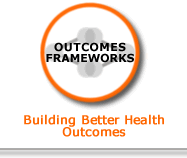 |
|
|
|
Links 3.6, 3.7, 3.8, 3.9, 3.10, 3.11 and 3.12 Actions: (evidence)
Actions: (evidence)
|
|
|
Workforce development activities to support the relevant competencies (to be defined by, for instance, local need, or national and professional guidelines) should include different service provider staff in contact with parents and families, and individuals in contact with children and young people. They should be delivered on an ongoing basis, and will contribute to the intended outcomes by enabling them to optimise early identification of parents and families in need, and to provide appropriate, timely advice, guidance and referral where necessary. Rationale Ongoing development (e.g. with training, continued professional development and induction processes, or by making this a part of routine assessments) of the relevant competencies of service provider staff will contribute to improved knowledge and understanding of their own and others’ contribution to supporting parents and families, and increased numbers of service provider staff that are skilled and motivated to support parents and families. It must also be recognised that this activity is dependent on local decisions around use of resources and priorities for training based on local need. It is also dependent upon the capacity of services and staff to deliver in this field (e.g. staffing levels and workforce planning, allocation of workloads). There are examples available from the evidence that illustrate the importance of workforce competencies, which would be gained and enhanced through action to support workforce development and appropriate strategic and management support of that workforce:
See also Box 9 – Professional roles and practices. References:
Activities to develop strong strategic leadership and collaborative working for supporting parents and families should include all relevant service providers and will contribute to improved links, pathways and processes for supporting individuals and families. This will, in turn, contribute to more consistent approaches, holistic, integrated and timely support for parents and families with any support needs or additional issues. Rationale Developing strong strategic leadership and collaborative working will contribute to improved and more integrated systems across service providers, and subsequently contribute to increased commitment and understanding across a range of partners and service providers in the system that supports parents and families. It will also contribute to increased commitment and motivation to support parents and families, ensure strategic commitment to lead staff in this area and motivate them to provide support. Limited highly processed evidence is currently available to support this rationale. Although there is no highly processed evidence presented that partnerships in public health lead to improved health outcomes, in order to achieve an integrated, holistic approach to the support of parents and families, collaborative working between service providers will be an essential component. Box 10 outlines two key Scottish policy drivers that will help to strengthen this action. Box 10: Scottish policy note The Scottish Government has developed two key areas that will provide strategic leadership at a national and local level to support the actions and outcomes specified in model 3. ‘Getting it right for every child’ (GIRFEC) [1] The Children and Young People (Scotland) Act [2] See section 2 (Context) and Appendix 1 ( Policy,Information and Cuidance) in the full outcomes framework for further detail. References:
|
|

